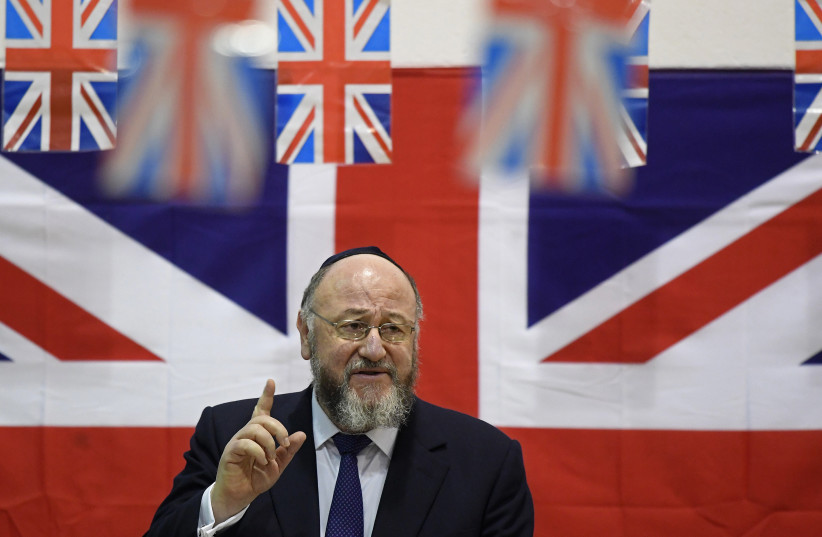As Minister of Diaspora Affairs, I have the great luxury of spending my days meeting Jews from across the globe, among all religious streams, generations and political spectrum.
One of those individuals I met with before Yom Kippur was Chief Rabbi of the United Hebrew Congregations of the Commonwealth Ephraim Mirvis.
During the meeting, Rabbi Mirvis shared with me the “Three As” facing the Jewish people: Antisemitism, the external threat; Assimilation, the internal threat; and Apathy, the hidden threat. His clear framing of the Jewish people’s challenges in many ways defines our priorities at our ministry.
In many ways, I see apathy as the most biting challenge of the day, with too much space given to internal tensions within the already-engaged religious streams. Sukkot provides us with perhaps the perfect opportunity and model of how to reach out to the questioning, the disconnected and the hurting Jews among us.
We are told that during the seven days of Sukkot the seven ushpizin – the founding fathers of Israel – come to visit our sukkah. Our sages write of the added value, the mitzvah, of opening one’s sukkah to guests near and far.

Maimonides writes in Mishneh Torah, “When one eats and drinks, one must also feed the stranger, the orphan, the widow and other unfortunate paupers. But one who locks the doors of his courtyard, and eats and drinks with his children and wife but does not feed the poor and the embittered soul, this is not the joy of a mitzvah but the joy of his belly.”
With this thought in mind, this Sukkot I ask my Jewish brothers and sisters around the world to use this time to find the stranger, the disenchanted, the Jew who goes to a different synagogue, or perhaps no synagogue at all, and invite them into your sukkah.
In Israel, I urge my fellow citizens to find the MASA fellow, the student studying abroad, the recent immigrant, or perhaps simply your neighbor who does not pray or vote as you do, and invite them into your sukkah.
Sukkot in many ways champions the notion that we must face our challenges with love and confidence. The exercise of dwelling in an open-air hut intentionally opens us up to external elements: wind, rain, heat, cold, mosquitoes. Yet despite these vulnerabilities, we are told to rejoice.
This in many ways is the story of the greater Jewish people – choosing to find the light despite the tragedies, insecurities and uncertainties that have followed us throughout our history and to the present day – whether in Israel or across the Jewish world.
Long after Sukkot comes and goes, my office will continue to focus on these “Three As” as well as more broadly, the relationship between the Jewish nation state and Jewish people in the spirit of Jewish peoplehood.
• On antisemitism: I’m focused on expanding our government’s understanding and sense of responsibility on this issue. We must develop state mechanisms that require the State of Israel to consider how its policies and actions impact the safety, security, and communal cohesion and resilience of the Jewish world.
• On assimilation: We are working with our partners – and continue to look for new ones – to engage Jews at every stage of their lives. We are investing in after-school Jewish education in the former Soviet Union through Smart-J. We are proud partners of Momentum, which inspires Jewish mothers to bring Israel and the Jewish experience into their homes. And we work with Chabad, Hillel and Olami through Mosaic United to engage young people on college campuses. With the creation of our Renewal Judaism branch, we will more heavily invest in pluralistic Jewish movements and causes and develop new ways to touch those not moved by traditional Jewish frameworks.
• On apathy: Our work moves beyond programs into deeper questions related to how we build a 21st-century Zionism and a 21st-century Jewish people in a way that lights a spark in the hearts, minds and souls of our expansive tribe.
I invite you into my Israeli sukkah – open all year around – to embark on these questions and others with openness, mutual trust, and hope.
The writer is the Diaspora Affairs Minister.
